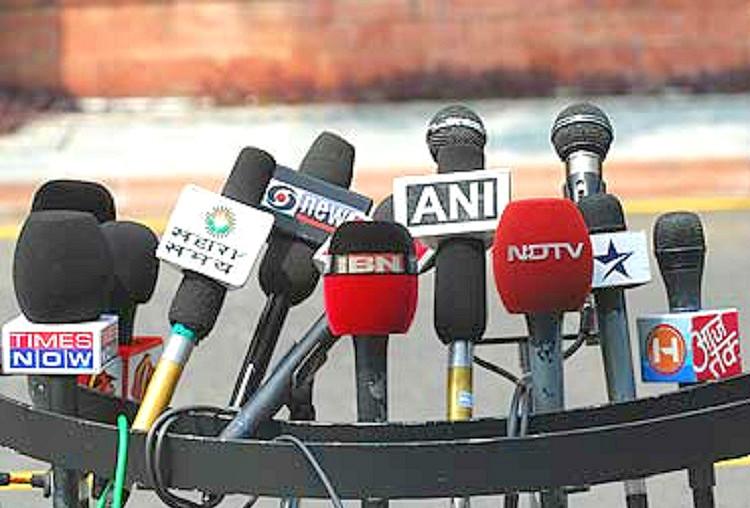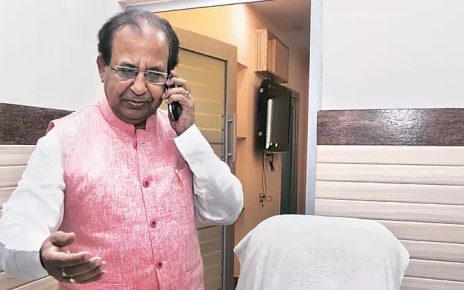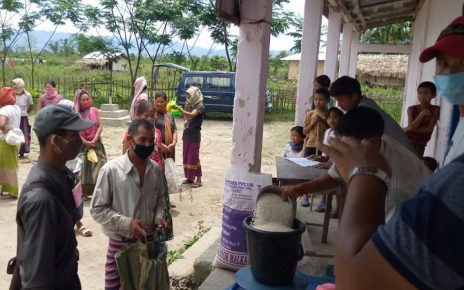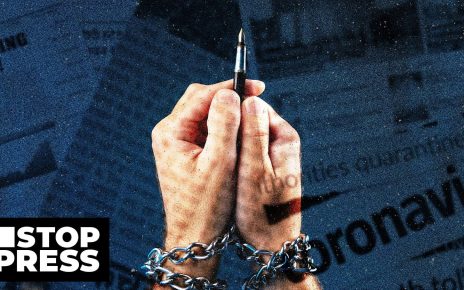Youth Ki Awaaz
09 August 2020
By Kalyani Singh in Media, Politics
“Where the press is free and every man able to read, all is safe.”- Thomas Jefferson
Media plays a pivotal role in democracy. It is considered the fourth pillar in democracy because it works as a messenger between government and unheard voices. The press plays a crucial role in raising issues on various issues in society, providing true and accurate information on different topics and giving space for different opinions on various issues through the quality of debates and discussions.
People give much respect to press in the local and marginalized section of the society where issues of local and marginalized people are unheard for several years. For them, the press is an important medium to raise their issues in a country, grab the attention of the government and demand for their right. True, accurate and unbiased information is necessary to foster democracy.
When the media of country is fearless and provides accurate information, then it influences the citizen of a country to analyze the different issues such as the impact of policy on a citizen of a country, transparency in the working of government, transparency in the working of different government institution from their own perspective. In a democracy, the press works as a channel for criticism when any government institution and policy is not working in accordance with commenced rules and regulation.
In a democracy, criticism helps to keep different government institution on track. In a vast democratic country like India press works as the spinal cord which provides information on various issue of a different region of the country to its citizen.
As like citizen of India press has also derived its right for freedom of speech and expression under Article 19(1) of Indian constitution as there is no press word mention under Article, with some restriction under Article 19(2) such as defamation, the security of the State, friendly relations with foreign States, public order, decency and morality, contempt of court, incitement to an offence and incitement to an offence. There is a press council Act 1978 for ensuring the safety, quality of information and independence of the press.
Objectives And Functions Of The Press Under Press Council Act, 1978
Objective-According to Section 13(1) of Press Council Act 1978, the objective of the press council of India is to protect the freedom of speech and expression of the press and to maintain and improve the standard of newspaper and news agencies in India
Its function is to fulfil the objective. The Press Council of India performs the following functions:
- To help newspaper agencies to maintain their independence
- To establish a code of conduct for the newspaper, news agencies and journalist to work in accordance with high professional standards
- To ensure on the part of newspaper, news agencies and journalist, the maintenance of a high standard of public taste and foster a due sense of both the rights and responsibilities of citizenship.
- To encourage the growth of a sense of responsibility and public service aiming all those engaged in the profession of journalism
- To ensure the news which is important for public interest should not be restricted
- To undertake studies of foreign newspapers, including those brought out by only embassy or other representatives in India of a foreign state, their circulation and impact
- To promote a proper functional relationship among all classes of persons engaged in the production or publication of newspapers or in news agencies.
- To concern itself with developments such as the concentration of or other aspects of ownership of newspapers and news agencies which may affect the independence of the Press;
- To undertake such studies as may be entrusted to the Council and to express its opinion in regard to any matter referred to it by the Central Government
- To do such other acts as may be incidental or conducive to the discharge of the above functions.
Journalists Face Several Risks In Reporting Accurate Information
The risks faced by the journalist is an arrest, registration of FIRs, fear of losing a job, physical assault and alleged destruction of properties. According to a Delhi think tank report, 55 journalists were targeted for showing a report on PPE shortage, food distribution, mismanagement of hospital and alleged corruption among others.
Report By Rights And Risks Analysis Group (RRAG)
| No of journalist | Coverage | Risk |
| At least 22 | Humanitarian crisisAdministration failureNegligencemismanagement | FIRs under the IPC and several acts |
| At least 10 | Food shortageLack of personal protective equipment (PPE) | Arrested for allegedly spreading fake news, exposing alleged corruption, violation of lockdown rules |
| 7 | Publishing official letter that addressed the shortage of PPE and their poor quality | Summoned for damaging administration’s image |
| At least 9 | Wildlife hunting on a spike | Beaten up and few of them face police custody |
The report released by Rights and Risks Analysis Group (RRAG) on 31 May 2020 says there are a number of journalists facing the risk of arrest, summon, police custody for reporting on various issues of humanitarian crises, food crisis and many more amid pandemic.
“Even though on 31.03.2020, the Supreme Court refused to interfere with the free discussion about the pandemic, the repression on the journalists who acted as messengers by risking their lives to convey the news of various mismanagement, deficiencies, corruption, the hunger of the migrant workers/impoverished citizens, lack of adequate PPE for doctors at hospitals etc began in earnest,” Suhas Chakma, director, RRAG, said.

There were many cases of attacks on journalist but only a few cases were taken into consideration by the Press Council of India.In recent years, several journalists have faced risks for criticising government policy and several democratic institutions:
- Gauri Lankesh was shot dead for her opinion against community politics and the caste system.
- Rane Ayyub, the winner of McGill medial of 2020, faces several threats and trolls on social media for questioning Modi Government on Gujarat riots in her book.
- Shujjat Bukhari, a leading journalist in Kashmir, was shot dead on 14 June 2018 for reporting on human rights in Kashmir.
- Several other journalists like Barkha Dutt, Sagarika Ghose, Neha Dixit, Sandhya Ravishankar face trolling and threats for criticising government policies and exposing scams.
India’s Position In World Press Freedom Index In The Last 5 Years Among 180 Countries
| Year | position |
| 2020 | 142 |
| 2019 | 140 |
| 2018 | 138 |
| 2017 | 136 |
| 2016 | 133 |
Committee To Protect Journalists’ (CPJ) Report On India
There are 12 times India has been placed in the global impunity index release by the Committee to Protect Journalists (CPJ). India is ranked 13th in the list of global impunity index 2019. India, with 17 unsolved murder cases between September 2009 and August 2019, is placed among riskiest country for journalists. According to the report, small-town journalists face greater risk in their reporting than those from larger outlets.
Conclusion
As we all know, the press plays an important role in raising the issues in society but due to the pressure of political parties, other institutions cannot perform their work fearlessly and several journalists those who show courage to criticize the mismanagement of institution face several risks such as murder, FIR and physical assault. It is very necessary that the Press Council of India take adequate action to prevent violation of rights of the press and to maintain its quality. There should be a committee in India which maintains a record on the cases of a journalist on murder, imprisonment, harassment and threat on social media. In a democracy, fearless media is necessary to let the citizens of the country think logically.



